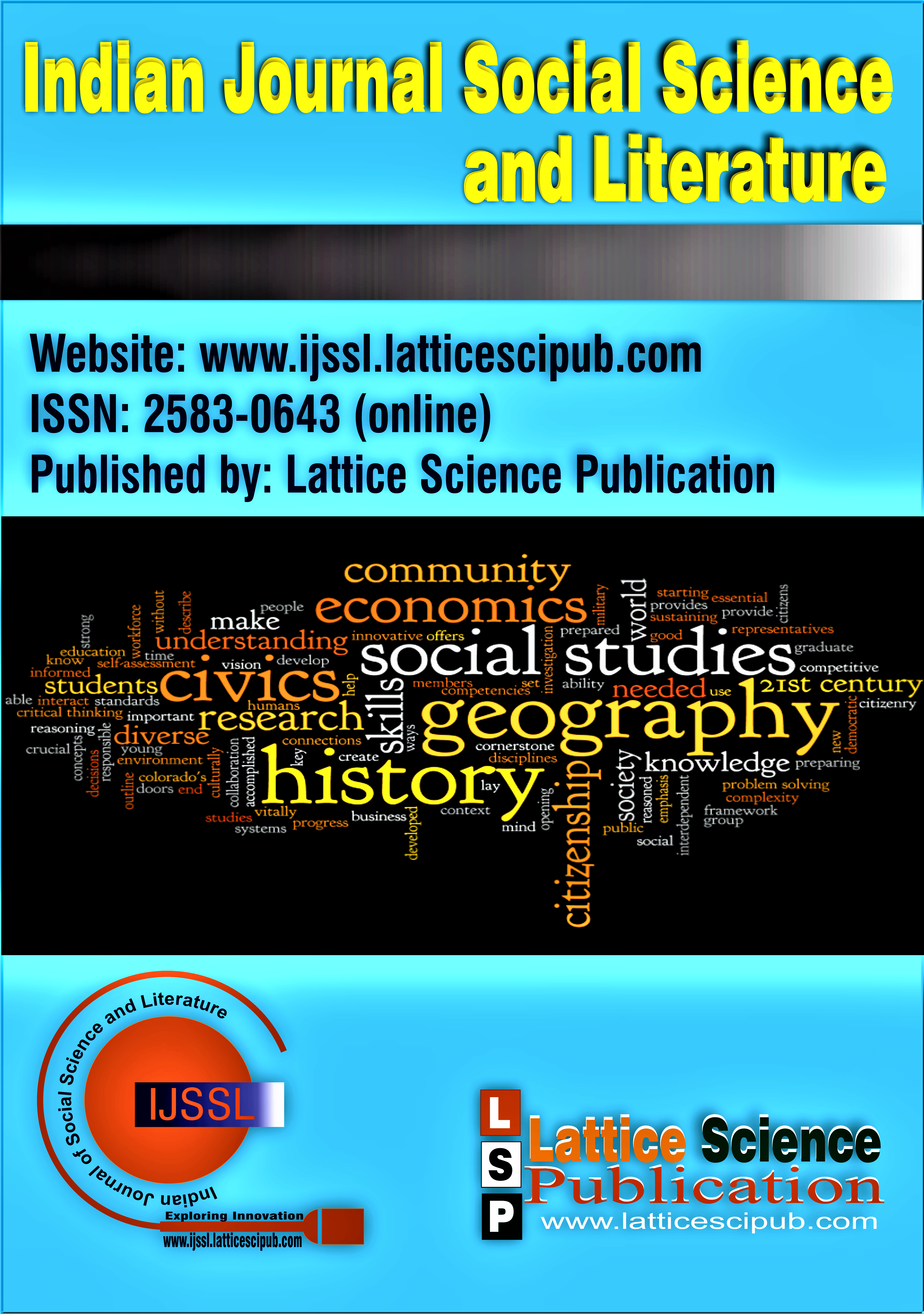Improved Self-Esteem: Vital in Promoting Enhancement of Living Conditions
Main Article Content
Abstract
The individuals from the stage of early childhood, throughout their lives need to acquire an efficient understanding of meaning and significance of self-esteem. Furthermore, they need to augment information in terms of all the factors, which are necessary in carrying out this task. The individuals are required to augment their information in terms of different factors, which are facilitating in the achievement of this goal. The different types of factors are, job duties, responsibilities, methodologies, procedures, techniques, approaches, efficiency, morality, ethics, diligence and conscientiousness. Furthermore, individuals are required to ensure, they are not overwhelmed by any types of stressful situations. In cases of these, one needs to cope with these in an effective manner. Furthermore, these are prevented from giving rise to impediments within the course of putting into operation different tasks and activities. One of the important aspects that needs to be taken into account is, these should not have unfavourable effects on overall living conditions of individuals. In addition, throughout the lives of the individuals, they need to augment information in terms of various factors, which are facilitating in promoting enhancement of overall personality traits. As a consequence, individuals, belonging to all occupations and communities will render an important contribution in enhancing self-esteem. Therefore, it can be stated, improved self-esteem is vital in promoting enhancement of living conditions. The main concepts that are taken into account in this research paper are, understanding the meaning and significance of self-esteem, measures to be put into operation in bringing about improvements in self-esteem and advantages of bringing about improvements in self-esteem.
Downloads
Article Details

This work is licensed under a Creative Commons Attribution-NonCommercial-NoDerivatives 4.0 International License.
How to Cite
References
Kazu, I.Y. (2009). The Effect of Learning Styles on Education and the Teaching Process. Journal of Social Science, 5(2), 85-94. Retrieved April 14, 2024 from http://thescipub.com/PDF/jssp.2009.85.94.pdf
Leonard, J. (2021). What are the Psychological Effects of Gender Inequality? Retrieved April 14, 2024 from medicalnewstoday.com
Marais, D. (2020). 9 Ways to Take Responsibility for Your Life. Retrieved April 14, 2024 from thriveglobal.com
Moseley, C. (2020). 7 Reasons Why Collaboration is Important? Retrieved April 14, 2024 from blog.jostle.me
Our Values and Ethics at Work. (2011). Catholic Health Initiatives. Retrieved April 14, 2024 from https://www.kentuckyonehealth.org/documents/Nursing/Ethics_at_Work.pdf
Srivastava, A., & Saxena, Dr. U. K. (2023). Digital Media and Media literacy. An Analysis of the Contribution and Effect of social media in Media Literacy. In Indian Journal of Mass Communication and Journalism (Vol. 3, Issue 1, pp. 17–22). https://doi.org/10.54105/ijmcj.a1051.093123
Das, Dr. S. S. (2023). Rising Popularity of Internet Memes in India: A Media Psychology Perspective. In Indian Journal of Social Science and Literature (Vol. 2, Issue 3, pp. 5–9). https://doi.org/10.54105/ijssl.c1058.032323
Kedar, S. V., & Rokade, S. (2019). Recognition of Emotional State Based On Handwriting Analysis and Psychological Assessment. In International Journal of Engineering and Advanced Technology (Vol. 8, Issue 6, pp. 4395–4402). https://doi.org/10.35940/ijeat.f8960.088619
Psychology of Business, Leadership and Communication as a Perspective Scientific Direction in Ukraine and Europe. (2019). In International Journal of Recent Technology and Engineering (Vol. 8, Issue 4S, pp. 98–102). https://doi.org/10.35940/ijrte.d1001.1184s19
Erdianza, N., Tentama, F., & Sari, E. Y. D. (2020). The Effect of Work Enjoyment and Work-life Balance on Organizational Citizenship Behavior with Job Satisfaction as Mediator. In International Journal of Management and Humanities (Vol. 4, Issue 7, pp. 67–73). https://doi.org/10.35940/ijmh.g0683.034720





